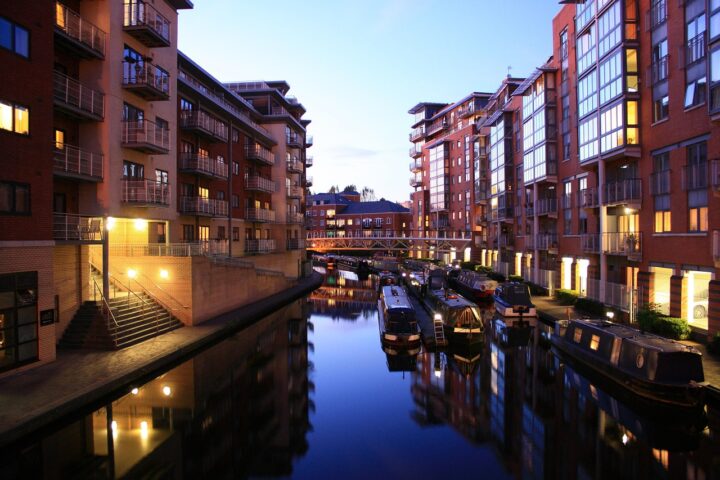Planning a visit to the United Kingdom for tourism, business, or to visit family and friends? One of the first steps in your journey is obtaining a UK Visitor Visa. While the application process can seem daunting, with the right preparation and understanding of the requirements, you can improve your chances of success.
In this blog, we will provide essential tips and guidance to ensure that your UK Visitor Visa application is smooth and successful.
Understanding the UK Visitor Visa
The UK Visitor Visa is a short-term visa that allows you to stay in the UK for up to 6 months. It is commonly issued for travel purposes such as tourism, visiting family or friends, attending business meetings, or receiving medical treatment.
There are a few different types of visitor visas, such as:
Standard Visitor Visa: For general tourism or leisure visits, business visits, or visiting family and friends.
Marriage Visitor Visa: For those planning to marry in the UK or register a civil partnership.
Business Visitor Visa: For individuals visiting the UK for business purposes.
Medical Treatment Visitor Visa: For individuals seeking medical treatment in the UK.
The visa also covers those attending academic visits or conferences, but it’s important to be clear on your visa type based on your specific purpose.
Tip 1: Know the Basic Requirements
Before diving into the application process, it’s crucial to understand the basic requirements for a UK Visitor Visa. Ensure that you meet the following criteria:
Valid Passport: Your passport must be valid for the duration of your stay in the UK and have at least one blank page for the visa.
Sufficient Funds: You must be able to show that you have enough money to support yourself during your visit without relying on public funds. This can include bank statements, proof of employment, or other financial documents.
Intention to Return: You must prove that you intend to return to your home country after your visit. The UK authorities will want to see that you have strong ties to your home country, such as family, employment, property, or education.
No Immigration Intentions: Your application should clearly demonstrate that you are not attempting to settle in the UK or overstay your visa. The UK Visitor Visa is strictly for temporary stays.
Tip 2: Provide Clear and Accurate Documentation
When applying for your UK Visitor Visa, it’s essential to provide accurate and complete documentation to avoid delays or rejections. Here are some key documents that you may need to submit:
Completed Application Form: You will need to complete the online visa application form (VAF1A) and pay the required visa fee.
Passport-sized Photographs: Two recent passport-sized photographs that meet the UKVI photo guidelines.
Proof of Funds: Bank statements or other evidence to show that you have enough funds to support yourself during your stay in the UK. If someone else is sponsoring your visit, you’ll need a sponsorship letter along with their financial documents.
Travel Itinerary: Details of your travel plans, including your arrival and departure dates, accommodation, and activities planned in the UK.
Accommodation Details: If you’re staying with friends or family, include an invitation letter from your host along with proof of their address and immigration status.
Return Ticket or Travel Plans: Evidence that you will return to your home country at the end of your trip. This could be a return flight booking or details of onward travel.
Supporting Letters: If you’re visiting family or friends, a letter of invitation from the person you are visiting can be helpful. Additionally, a letter from your employer confirming your leave or a letter of admission if you are attending a conference may also be necessary.
Tip 3: Demonstrate Your Ties to Your Home Country
One of the most important factors in securing a UK Visitor Visa is proving that you will return to your home country after your visit. UK immigration authorities want to be certain that you have compelling reasons to go back to your country. Here are some ways to demonstrate your ties:
Job: A letter from your employer stating that you have been granted leave for the duration of your trip and confirming your expected return to work is a strong piece of evidence.
Family: Evidence of your family’s residence in your home country, such as a marriage certificate or children’s birth certificates, can show your personal ties.
Property Ownership: If you own property or a business in your home country, providing proof of ownership or investment can demonstrate your intention to return.
Education: If you are enrolled in an educational program, provide documentation showing that you will be returning to your studies after your visit.
Tip 4: Be Honest and Transparent
When submitting your application, it is vital to be honest and transparent. Misrepresentation or providing false information could result in your visa application being refused or even banned in the future. Always provide the truth about your reasons for visiting the UK, the length of your stay, and your financial situation.
If you have previously been refused a UK visa, you should not hide this information. It is essential to provide full details of any previous visa applications, refusals, or overstays. Address the reasons for refusal clearly in your application and provide supporting evidence of how your situation has changed.
Tip 5: Consider Using Professional Help
While you can apply for a UK Visitor Visa on your own, the application process can be complicated and stressful, especially if you are unsure about your eligibility or required documents. Consulting with an immigration lawyer or visa consultant can help ensure that your application is completed correctly and that you have all the required documentation in place.
A professional can also guide you through the process of submitting your application, addressing any specific questions from the UK Visa and Immigration (UKVI) office, and increasing your chances of approval.
Tip 6: Be Prepared for the Visa Interview
In some cases, you may be asked to attend an interview as part of your visa application. This is generally a routine part of the process and allows UKVI officials to clarify details about your application.
To prepare:
- Be familiar with the details of your application.
- Be ready to explain your travel plans and the reasons for your visit.
- Be calm and honest during the interview.
Tip 7: Apply in Advance
The visa application process can take several weeks, depending on the country from which you are applying. Therefore, it’s important to apply well in advance of your planned travel dates. While the UK Visitor Visa generally takes 15 working days to process, it’s always safer to apply at least 2-3 months ahead to avoid any potential delays.
Conclusion
Securing a UK Visitor Visa can be straightforward if you are well-prepared. By following these tips and submitting a complete and accurate application, you can increase your chances of a successful visa outcome. Remember to provide all required documentation, demonstrate your ties to your home country, and be honest in your application. With careful planning and attention to detail, you’ll be well on your way to exploring the UK!
For more information you can contact UK Property Inspection Report or call us at 07500242494 / 020 3129 5156.




